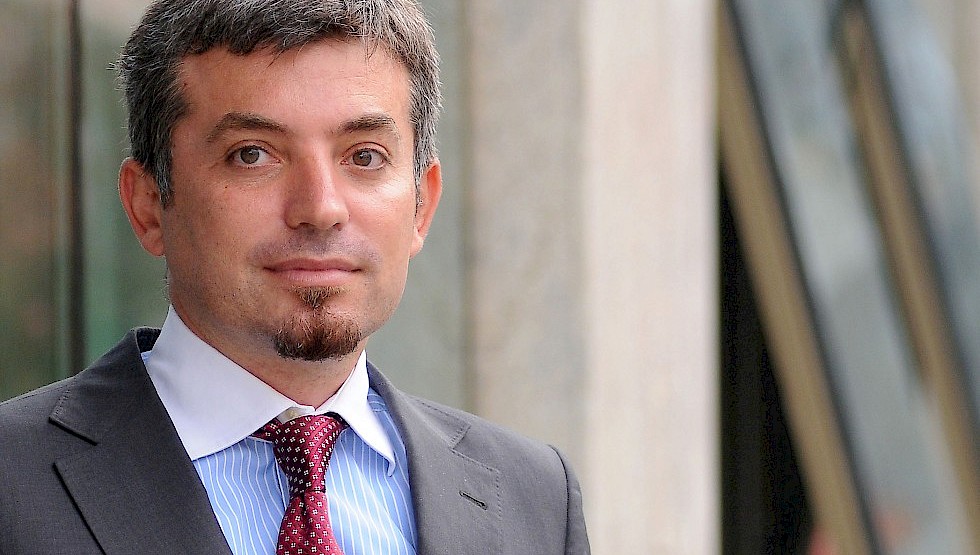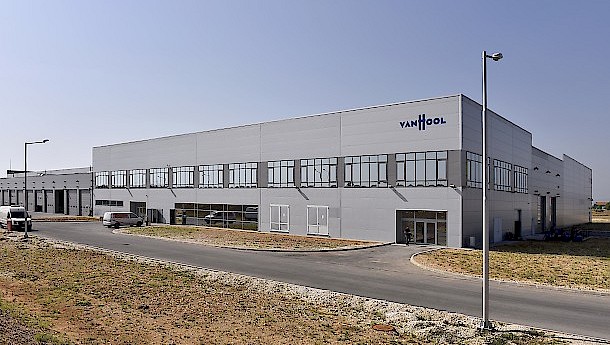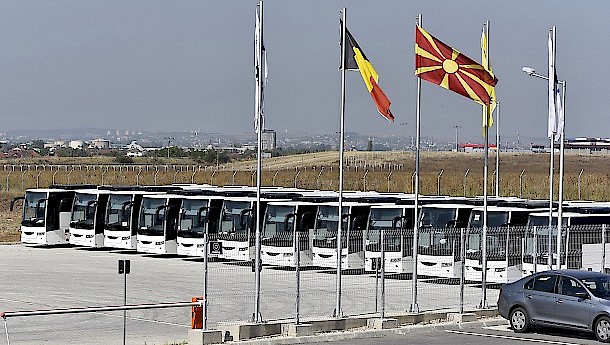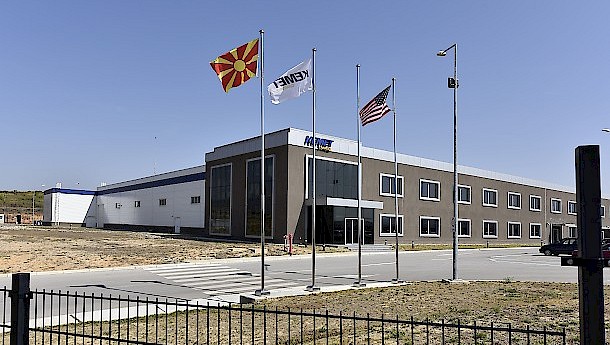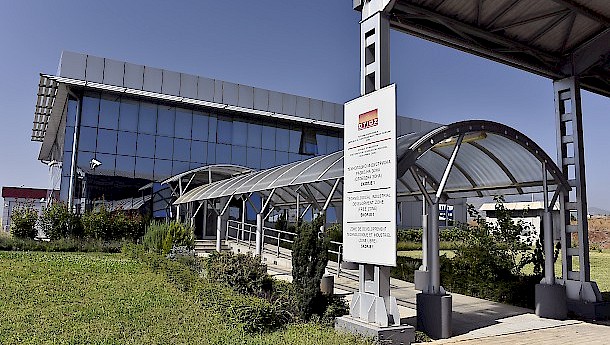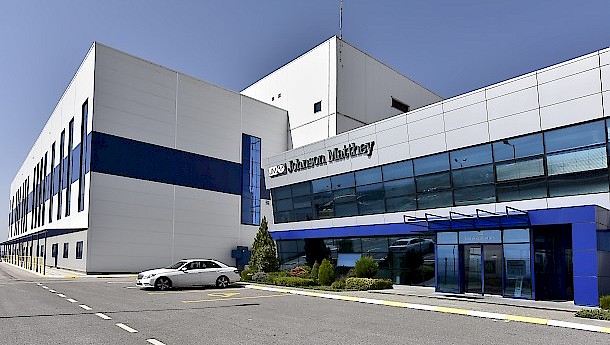The Macedonian government’s Free Zones Authority manages a total of 14 special economic zones throughout the country – four of which are already fully operational. Its CEO, Viktor Mizo, spoke to The Report Company about Macedonia’s efficient business climate and the infrastructure and incentives available for investors who choose to set up a base in the country.
The Report Company: What are Macedonia’s advantages as an investment destination?
Viktor Mizo: Generally speaking, most countries in Central and Eastern Europe have a great location, solid infrastructure, and a dynamic workforce. The biggest differentiator for Macedonia is the investment-friendly government. In our case, even a small investment, a company that is willing to hire 50 people and invest €5 million, will get the red carpet treatment, because such an investment is more relevant and tangible for a small economy.
An investor can easily meet with a decision-maker. I report directly to the prime minister. When the prime minister came into power in 2006, he reached out to people like me who had nothing to do with politics, lived or were educated and worked abroad, to try to bring us back to help the country. A few of us, who are not members of a political party but who went to great business schools and worked with multinational companies, have come back to help the country in this process of economic development. It’s essential that the needs of potential investors and companies are well understood. I am an engineer who used to work in the automotive industry. I designed locomotives for GE prior to getting my MBA. Therefore, I understand manufacturing. When I speak to a multinational company, I understand what their needs are. There is no guesswork. This creates trust from the side of the investor that we know what we are talking about, and that we know how to address some of their needs.
Additionally, in terms of incentives, what is relevant in Macedonia is that while we are not yet a member of the EU, we still have to follow EU rules and regulations on state aid and competition, but we have more flexibility. This means that each company coming to Macedonia knows in advance that what they are offered is within the EU framework.
From a logistics standpoint, we have a competitive advantage regarding certain products being made here, especially those which have a high cost-to-weight ratio. Our transportation system allows just-in-time manufacturing to reach the final customer within less than three days. Additionally, we have access to the port of Thessaloniki which is very close. The development of the airport, railroads, road network, and connectivity with the whole region is very important for business.
There are also our macroeconomic indicators. We had robust growth of over six percent prior to the crisis, and while our economy declined in 2009 like many others, we grew by 0.4 percent, which made us the third-best performing economy in Europe at the time. Last year, we had the second highest growth in Europe. This year and next are positively forecast to reach a growth of about four percent. Considering Europe’s current situation, this is quite an accomplishment.
Inflation has been very low, at less than two percent over about 15 years or so. Our currency is pegged to the euro, so our inflation has to be in line with eurozone inflation and even slightly lower. This currency stability means that companies can have predictability in terms of the final cost of their product. Our debt-to-GDP ratio is about 46 percent, which is one of the lowest in Europe. The budget deficit is also under control. Our credit rating was maintained throughout the crisis. This was due in part to the conservative nature of our banks and no real estate bubble occurring, hence there was no spill-over effect on the banking sector.
In terms of the foreign investment regime, a foreign company receives exactly the same treatment by the constitution as a local company. There are no restrictions on repatriation of profits, and unlike in the Gulf States or China, you don’t have to have a local partner. Essentially, a company can come in, set up a business and operate in the same way as they would operate anywhere else in Europe.
The local market is very small, with two million people, but we have signed bilateral or multilateral trade treaties with 41 countries, the European Union, EFTA, CEFTA countries as well as Turkey and the Ukraine. This means that we have a market of more than 650 million people.
TRC: What is the business climate like in Macedonia?
VM: We have set up a one-stop-shop system in terms of company registration, paying taxes, and registering property. We have also migrated many of the services online, because when you remove the human interaction, the potential for corruption decreases. We have improved all of the processes by reducing the fees and the steps that you need to take to run a business. Based on this, in the World Bank’s 2016 Doing Business report, out of 189 countries in the world, we are ranked 12th. We used to be ranked 94th, back in 2006. Now we are sixth in Europe and we are only behind the UK, Denmark, Sweden, Norway and Finland.
TRC: What can you tell us about the free economic zones?
VM: Last year, the zone in Skopje was named best zone for large tenants in Europe in terms of the services and amenities we offer. We have 14 different zones around the country, located in different areas, of different sizes, and in various levels of development. Not all of them are operational; in some of them we are working on finishing the infrastructure. Once a company gives me the green light that they will invest, then we will build. Based on an investment decision of a company, I will allocate budget to build out the infrastructure according to the needs of the company.
In terms of incentives, investors get a 10-year corporate and personal income tax holiday. There is no VAT. The government will provide cash incentives of €0.5 million, if the company employs a hundred people or invests €15 million. The government can also provide job creation or training grants, all of which within EU rules and regulations. We are not about buying investment. The idea is to provide incentives up to the point where we can help the company, but not to the point that investment decision is incentive-based.
“The local market is very small, with two million people, but we have signed bilateral or multilateral trade treaties with 41 countries, the European Union, EFTA, CEFTA countries as well as Turkey and the Ukraine. This means that we have a market of more than 650 million people”Tweet This
TRC: Why should an investor choose to invest in the free zones?
VM: In my opinion, the biggest differentiator between us and the rest of the region is the following: we as an institution can help and guide you as a company through the whole process of investment. We can assist with the analysis of the country versus the region, finding the right location, putting you in touch with local suppliers, helping you with the university connections and everything else that is needed prior to making the decision. We changed the legislation so that the Free Zones Authority is responsible for providing construction permits and operation permits, which means that investors do not deal with government institutions. This is a real one-stop shop, where if you need assistance with permits, you talk to us. All of that support is free of charge. No matter how many consulting firms and law firms you engage locally, you are coming to a new country that you are not familiar with, so we provide this after-care to our investors. We also as an institution gather input from all types of investors on issues they are facing in order to help us make improvements.
TRC: What needs to be done to boost Macedonia’s brand internationally?
VM: We need to continue to create brand awareness and brand recognition. The government has been promoting Macedonia’s investment conditions globally through road shows and presence at industry-specific events. We have partnered with relevant media such as the Financial Times, Forbes, Automobilwoche, and Automobil Produktion in organising B2B events, presentations, and meetings. Additionally, the ‘Invest in Macedonia’ and ‘Macedonia Timeless’ campaigns continue to be broadcast on international TV stations such as CNN, Euronews, Eurosport, and the Travel Channel. All of these outlets have aided Macedonia’s promotional efforts for the past eight years, and reinforced the fact that Macedonia truly is an ideal investment and tourist destination.
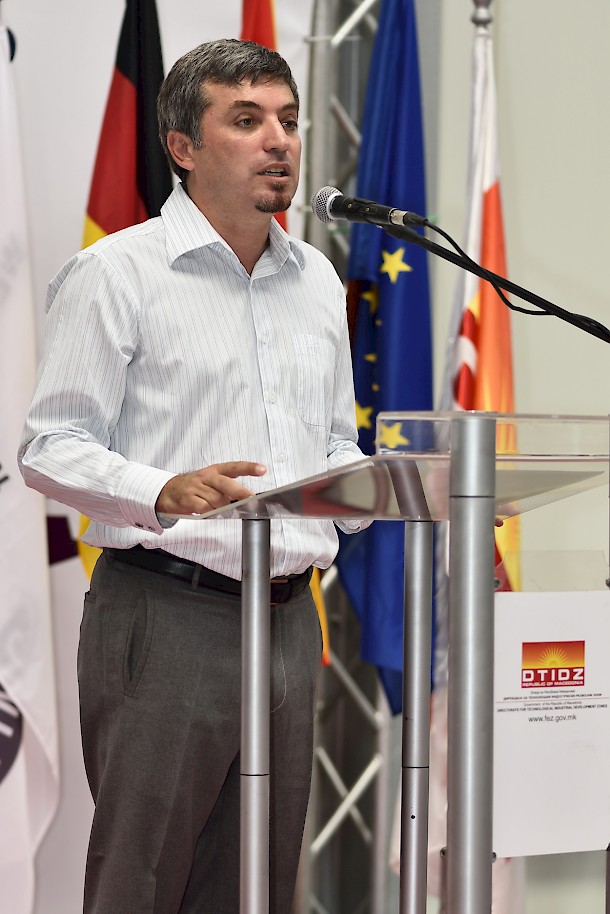 CEO Viktor Mizo addresses potential investors at a conference | Photo: Free Zones Authority
CEO Viktor Mizo addresses potential investors at a conference | Photo: Free Zones Authority
TRC: What are the key advantages of Macedonia?
VM: Our total effective tax rate is the lowest in the world at 7.4 percent. We have to look at the kind of industries that we can attract, and we have to know what kind of investment we can attract to have the right mixture of labour and capital content. If you only go labour-intensive, you are perceived as low-cost. Low-cost can only last for so long. You need to have the skill base and the capital set up locally. We want to create synergies along the supply chain, and we are working actively with the IFC and the World Bank on those linkages to make sure that foreign investors cooperate with local companies.
On Transparency International’s corruption perception index, we have improved 41 places over a period of eight years. We are ranked 64th in the world. There is a time lag in changing perceptions, but if you were to ask any of the existing investors in Macedonia, especially in the free economic zones, they will be more than happy to share with you the fact that they have not faced any corruption.
In terms of cost, the fully-loaded monthly salary is about €510, and we have the third youngest population in Europe after Turkey and Kosovo. We spend about six percent of GDP on education, which is slightly above the OECD country average, and we therefore have created a very good pool of capable people that have the skills needed by industry.
We talk about logistics, and all global logistics suppliers are located here. We have a flat 10 percent corporate and personal income tax, there is no tax on reinvested profit, and on top of this there are incentives in the free economic zones.
“Macedonia has a fascinating past, but the narrative is about us maintaining our status as a modern, developed country”Tweet This
TRC: How has your experience at Invest Macedonia informed your strategy as CEO of the Free Zones Authority?
VM: As CEO of Invest Macedonia, I spent four years putting Macedonia on the radar of potential investors looking to expand in Europe. We started from the ground up. It truly was a labour of love. At that time, few people knew of Macedonia or where it was located. Our initial goal was to change that. That is how the investment and tourism campaigns started. Early on, the government created an economic team, of which I am part, and we began to organise business forums and road shows internationally. It was an effective means by which potential investors had the opportunity to not only hear about Macedonia’s incentives, but to also meet with the prime minister and key government officials and learn first-hand about the business climate in Macedonia. It allowed us to show investors that they could count on the government as a business partner. This approach, along with sustained reforms, and listening to the needs of investors, has continued to govern my strategy at the Free Zones Authority.
TRC: What is the narrative of Macedonia today?
VM: Macedonia is a crossroads of civilisations, a unique blend of ancient and modern. Macedonia is home to the UNESCO-protected Lake Ohrid – one of the world’s oldest and Europe’s deepest lakes. It is also home to the megalithic observatory Kokino, the fourth oldest observatory in the world, according to NASA. Yet it is on a par with its European neighbours, boasting four national parks, 78 wineries, 34 mountain peaks exceeding 2,000 metres, and several highly-developed ski centres. The Ohrid Summer Festival, Struga Poetry Evenings, Skopje Jazz Festival, and May Opera Evenings attract artists from around the globe. Macedonia has a fascinating past, but the narrative is about us maintaining our status as a modern, developed country; a multi-ethnic and multi-religious country in a turbulent part of the world that has peace and stability, and that continues to be an attractive destination for FDI.
